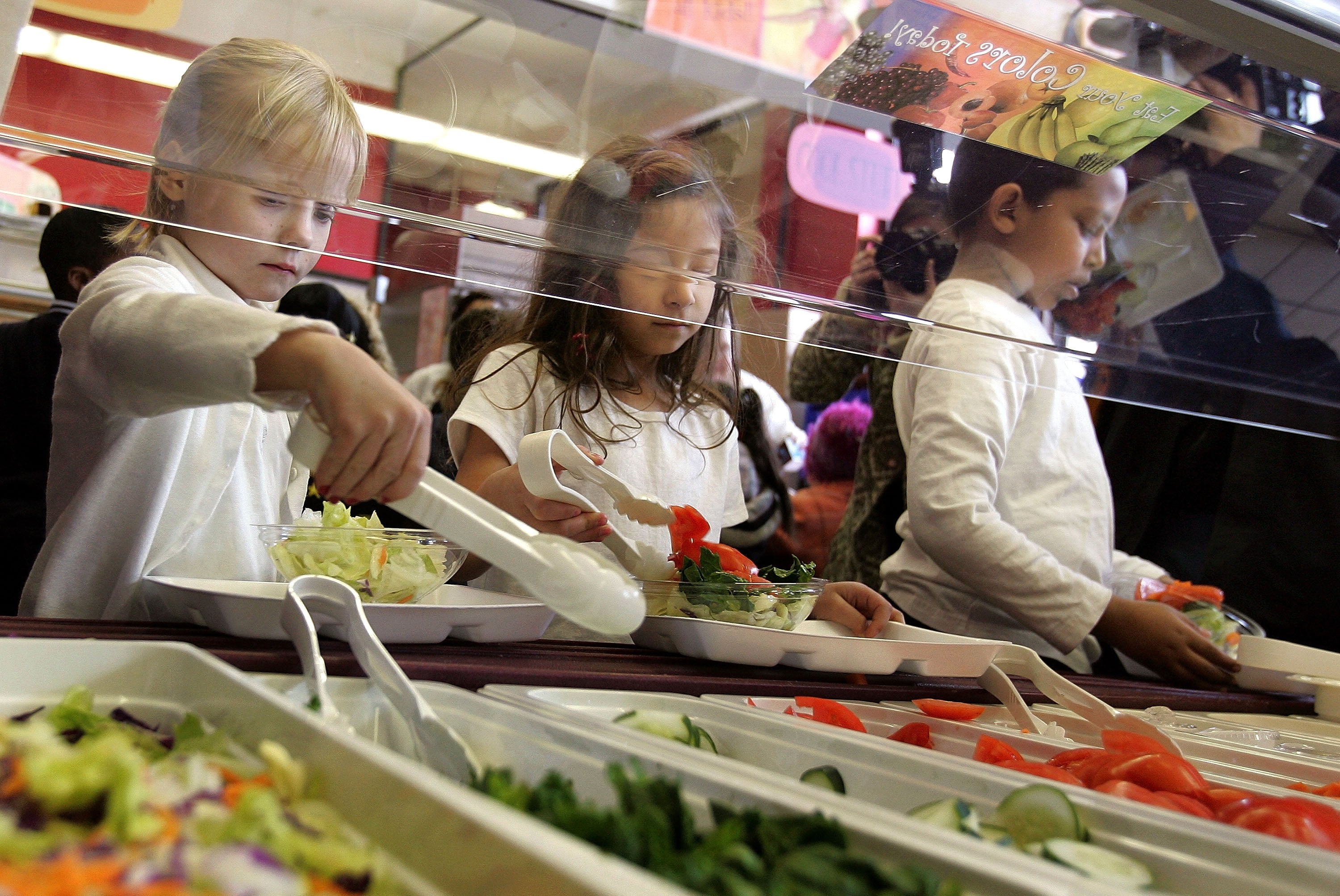Keep facial recognition technology out of the school lunch queue
My son has missed lunch before, but that doesn’t justify signing his personal data away


Your support helps us to tell the story
From reproductive rights to climate change to Big Tech, The Independent is on the ground when the story is developing. Whether it's investigating the financials of Elon Musk's pro-Trump PAC or producing our latest documentary, 'The A Word', which shines a light on the American women fighting for reproductive rights, we know how important it is to parse out the facts from the messaging.
At such a critical moment in US history, we need reporters on the ground. Your donation allows us to keep sending journalists to speak to both sides of the story.
The Independent is trusted by Americans across the entire political spectrum. And unlike many other quality news outlets, we choose not to lock Americans out of our reporting and analysis with paywalls. We believe quality journalism should be available to everyone, paid for by those who can afford it.
Your support makes all the difference.I found the news that schools in Scotland have signed up to trial facial recognition software to scan children’s faces really quite frightening. What’s next, microchipping babies?
The council have apparently said that a staggering 97 per cent of children or their parents had consented to the new system. Surely we should be teaching our kids to protect their personal identities, online and in the real world, not hand them over to the nearest bidder for the sake of convenience?
Many schools, including my eldest son’s, already use biometric software, including fingerprint recognition but the facial recognition technology, which is being trialled by nine schools in North Ayrshire, takes it to another level.
Do we really want to normalise surveillance in the lunch queue at school canteens? Isn’t anyone at all concerned about how that data will be collected, categorised and used in the years to come?
The company who installed it, CBR Cunninghams, is billing it as being more “Covid-secure” but the idea that it is somehow “safer” to use this sort of technology in a post-pandemic world just shows how skewed our perceptions of what is and isn’t acceptable has become. What’s wrong with cashless and contactless payments?
As a parent, this is not something I would ever put my three children forward for, although perhaps posting pictures of them on social media is just as bad in some ways.
David Swanston, the managing director of CBR Cunninghams, who installed the software, which cuts the average transaction time to five seconds per pupil, said it was “the fastest way of recognising someone at the till”.
He told the Financial Times: “In a secondary school, you have around about a 25-minute period to serve potentially 1,000 pupils. So we need fast throughput at the point of sale.”
I hate queues as much as the next person and there are times my 12-year-old has missed out on his lunch thanks to the new staggered slots system at his secondary school, but I don’t think that justifies signing his personal data away, when he can’t even vote, earn money or drive a car yet.
The Information Commissioner’s Office (ICO), an independent body set up to uphold information rights in the UK, is, thankfully, set to intervene. The ICO said it would be contacting North Ayrshire Council about the technology and urged a “less intrusive” approach where possible.
An ICO spokesperson said organisations using facial recognition technology must comply with data protection law before, during and after its use, adding: “Data protection law provides additional protections for children, and organisations need to carefully consider the necessity and proportionality of collecting biometric data before they do so.”
Facial recognition technology is already standard in some countries, such as China and some parts of the United States, but I don’t think it’s something that the UK, which is supposed to be a democracy, should be advocating for our children.
In China, some schools have taken things even further by installing cameras in classrooms to identify facial expressions to determine how focused children are on their lessons. Will they be punished if they are not concentrating properly? Squid Game springs to mind.
To keep up to speed with all the latest opinions and comment sign up to our free weekly Voices newsletter The Opinion by clicking here
The counterargument is probably that facial recognition, along with AI and biometric software, is set to become an increasingly normal part of our daily lives. We already willingly hand over our personal data to ethically dubious technology giants such as Facebook, have CCTV cameras everywhere and use apps that track our every move.
But there’s a big difference between choosing to opt into these sorts of things as adults and signing our children up to it without properly consulting them or warning them of the potential dangers.
A Scottish government spokesperson said that local authorities, as data controllers, had a duty to comply with general data protection regulations and that schools must, by law, adhere to strict guidelines on how they collect, store, record and share personal data.
But, as we know, data breaches can happen. It’s a big no from me.
Join our commenting forum
Join thought-provoking conversations, follow other Independent readers and see their replies
Comments